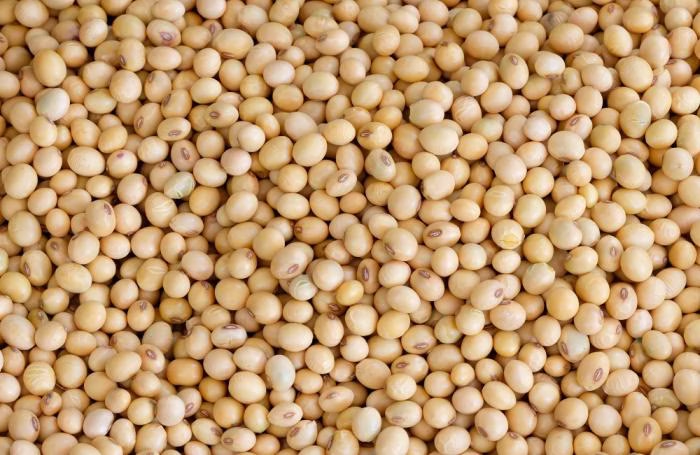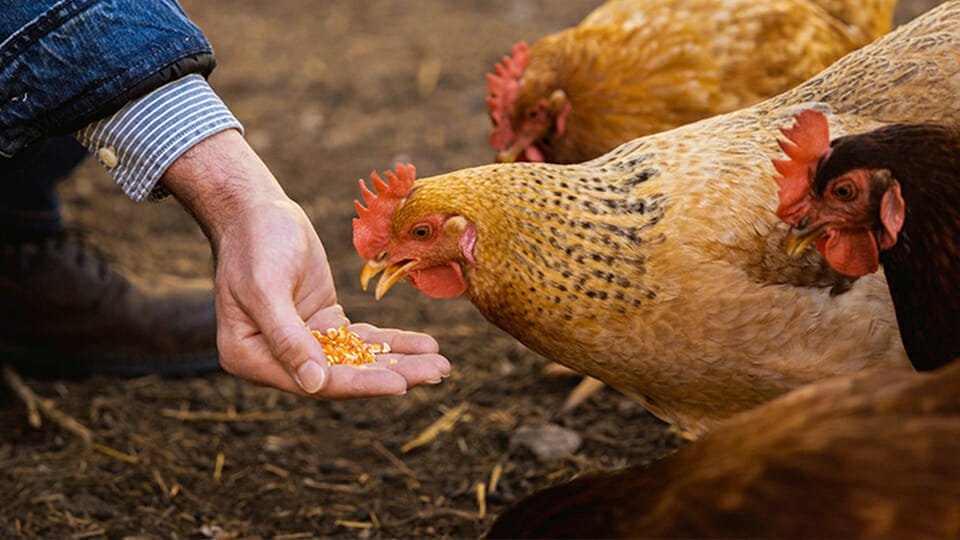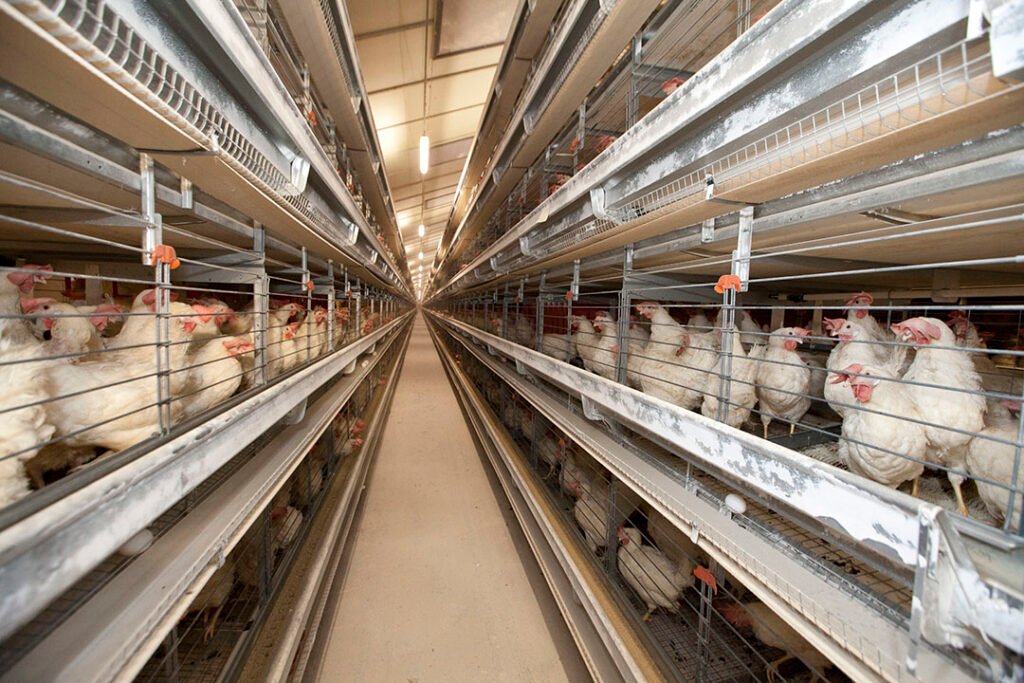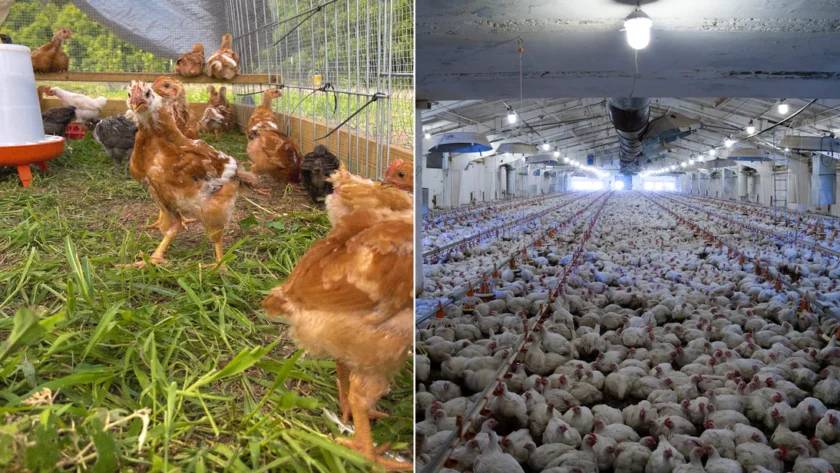Table of Contents
In the world of egg production, not all eggs are created equal. This eye-opening article delves into the stark differences between conventional and pasture-raised organic eggs, revealing shocking truths about chicken feed, living conditions, and industry practices. From the hidden ingredients in animal feed to the deceptive use of synthetic dyes, we uncover the realities behind the eggs on your plate.
Learn why the extra cost of organic, pasture-raised eggs is a worthy investment in your health and animal welfare. Whether you’re a health-conscious consumer or simply curious about where your food comes from, this exploration of egg production will forever change the way you look at your breakfast.
Watch Out This Before Eating Another Egg
📌 Key Differences:
- Chicken Living Conditions:
• Conventional: Caged, up to 100,000 chickens per barn
• Cage-free: 1 sq ft per chicken, still crowded
• Free-range: 2 sq ft per chicken, limited outdoor access
• Pasture-raised: 108 sq ft per chicken, outdoor foraging - Feed Quality:
• Conventional: GMO corn, soy, animal by-products
• Organic: No GMOs, pesticides, antibiotics, or animal by-products - Nutritional Value:
• Pasture-raised eggs have higher levels of vitamins A, E, B2, choline, and folate - Egg Yolk Color:
• Natural color comes from diet
• Some producers use synthetic dyes to enhance appearance
📊 Are eggs healthy?
YES, especially pasture-raised organic eggs:
• More nutritious
• Chickens live in better conditions
• No artificial additives or harmful feeds
❗ Things to watch out for:
• Unregulated expiration dates (eggs can sit on shelves for up to 60 days)
• “Omega-3 enriched” labels may be marketing gimmicks
👉 Remember: Quality is worth the extra price when it comes to eggs. Your choices affect both your health and the welfare of chickens.
So let’s dive into the details…
Pasture-raised eggs vs. conventional eggs

I highly suggest that you read this before you eat another egg. There is a huge difference between the conventional eggs that you get at the grocery store versus something that is called pastured-raised organic eggs.
There’s a huge difference, and that’s what I’m going to get into today.
Unfortunately, even the expiration date is not regulated. So in other words, companies can just omit that little date on the box, and it’s not unlikely that these eggs could sit on the shelf for 60 days – that’s two months before you end up buying them.
- Significant difference between conventional and pasture-raised organic eggs
- Expiration dates on egg cartons are not regulated
- Eggs can potentially sit on shelves for up to 60 days
Are eggs healthy?
The Truth About Chicken Feed
One of the things that really shocked me when I did a deep dive into this topic is the feeds that they feed the chickens – the animal feeds. Okay, what are in these animal feeds?

Yes, they have GMO corn and soy, and that’s very unnatural because these chickens were meant to consume bugs, insects, worms, flowers, seeds, things like that.
But I found out that there’s another ingredient called animal by-products or another name for that would be animal protein products.
That would include the carcass of another animal, feathers, organs, blood, skin, even of the same species, and manure. At first, I’m like, wait a second, that can’t be true.
But as I dug further into this topic, it’s true. These animals are fed this.
- Conventional chicken feed contains GMO corn and soy
- Animal by-products are used in some chicken feeds
- Natural chicken diet includes bugs, insects, worms, and seeds
The Vegetarian Feed Dilemma

Now, of course, you also get an option on the label: sometimes they’re fed vegetarian feeds, right?
Well, I want to bring up a point about vegetarian feeds, and that would be corn and soy, no animal products.
but I also want to point out that it’s very unnatural for a chicken just to consume grains without bugs, worms, things like that, which by the way are not vegan, and chickens are actually omnivores.
- Vegetarian feeds are not natural for chickens
- Chickens are omnivores, not herbivores
The Egg Yolk Color Deception
So that leads me to the next topic about eggs relating to the color of the egg yolk. Some people had this idea that if you look at the color of the egg, it’ll tell you the health of that egg, right?
Makes total sense until you find out that they actually sell and use on a regular basis colored pigments – synthetic dyes to make the yolk look a certain color because if you don’t do that, the consumer is not going to buy it.
- Egg yolk color can be artificially enhanced with synthetic dyes
- Natural yolk color comes from the chicken’s diet
Free-range vs. cage-free vs. pasture-raised eggs
Now I’ve talked about the chicken feed a little bit, but what about the environment, the space, right? You have different terms they throw around like free-range and cage-free and pasture-raised.

The first thing you need to know is that conventional chickens are in cages and they never see the light of day. And you’re talking about probably roughly having up to 80 to 100,000 of these chickens in one barn, in one space.
And it’s also been studied that the cortisol greatly spikes in that situation. That can’t be healthy for the chicken.
- Conventional chickens live in cages, never seeing daylight
- Up to 100,000 chickens can be housed in one barn
- High cortisol levels in chickens due to cramped conditions
Then we have something called cage-free. It sounds a lot better, but all they do is they remove the cage, but they don’t change the spacing.
So in order to be cage-free, you actually have to have a foot of space for that chicken. So you’re still shoulder to shoulder, you’re still in a closed space.

Then you have free-range, right? What does free-range mean? Well, for free-range, you get about two square feet of space. You have some limited outdoor access.
There might be a hole in the barn where it can stick its head out to maybe see outside. And if I’m not mistaken, free-range is antibiotic-free, whereas cage-free they can use antibiotics like conventional.
- Cage-free: 1 square foot per chicken, still crowded
- Free-range: 2 square feet per chicken, limited outdoor access
Benefits of pasture-raised eggs
And then we get to pasture-raised. This is the best because they get 108 square feet of space per chicken, much better, and they are allowed to go out and forage for bugs and worms and insects and flowers and things like that.
And if you compare pasture-raised to conventional, there is at least three times as much vitamin A retinol, there’s more choline, there’s more B2, there’s more folate, there’s three times as much vitamin E, and overall you’re going to get more fat-soluble vitamins.
- Pasture-raised: 108 square feet per chicken
- Chickens can forage for natural food sources
- Higher nutrient content compared to conventional eggs
Antibiotic Use in Farming
Now I do want to mention antibiotics for a second because you might say well, they don’t really use antibiotics anymore. Well, worldwide, out of all the sale of antibiotics, 66% of all of those antibiotic sales are sold to farm animals.
And in America, 80% of all antibiotics are used for farm animals.

So of course, when you get eggs, when you buy eggs, make sure it says antibiotic-free or even better yet, just do organic pastured-raised eggs.
That way, you include a better environment for that chicken as well as a better source of feed because organic has to come without those pesticides, insecticides, herbicides, non-GMO, which is good, but they also have no hormones, no antibiotics, no arsenic, and no poultry slaughter byproducts.
So in other words, those animal byproducts that include the waste are not in organic.
- 66% of global antibiotic sales are for farm animals
- 80% of antibiotics in America are used for farm animals
- Organic pasture-raised eggs offer the best quality and environment
Now you might say well, they’re more expensive. Yeah, they’re a few more dollars. Well, guess what? It’s worth it. And even the reason why they use antibiotics, they use it as a growth hormone.
That’s what they’re using to grow them in a very fast rate.
Are omega-3-enriched eggs good for you?
One last thing about these chicken eggs: sometimes you’ll see omega-3 enriched. Okay, and that is a marketing gimmick.
You don’t really know the source of Omega-3 that they’re enriching these chickens with. Personally, I think you’d be better off just focusing on the pastured-raised organic chicken eggs.
- Omega-3 enriched eggs may be a marketing gimmick
- The source of omega-3 in these eggs is often unclear
- Pasture-raised organic eggs or home-raised chickens are better options
Learn more about the benefits of eggs!
So now that you know a bit more on differentiating the type of egg that you really need, let’s talk about some other benefits of the egg from this topic right here.
Summary
There is a huge difference between the typical eggs at your grocery store and pasture-raised eggs.
Conventional eggs aren’t highly regulated. Even the expiration date isn’t regulated, so they may sit on the shelf for months before you get them.
However, one of the biggest issues we want to look at is what the chickens producing these eggs are fed. Chickens are meant to consume insects and worms. Instead, they’re fed GMO corn and soy.
What’s really shocking is that there is another ingredient in common chicken feeds called animal byproducts or animal protein products.
These animal protein products can include:
• Feathers
• Organs
• Blood
• Skin
• Manure
Even the vegetarian feeds are corn and soy—and it’s unnatural for chickens to consume grains alone.
Many people think that the color of a yolk will tell you the health of an egg. However, synthetic dyes are sometimes used in chicken feeds to give the yolk a certain color.
If a chicken eats what it should, the egg yolks will have a naturally vibrant golden color. In nature, it’s the antioxidants that give eggs this natural color. Eggs that have less of this natural color have fewer antioxidants.
Conventional eggs are produced by chickens in cages that never see the light of day. These chickens are very crowded and stressed.
- Cage-free eggs are from chickens that are cage-free, but they’re still crowded in an enclosed space. Antibiotics can also be used on conventional and cage-free chickens.
- Free-range chickens have slightly more space than cage-free chickens, and they have limited outdoor access. However, pasture-raised chickens have far more space and the ability to forage for food.
- Pasture-raised eggs have higher amounts of fat-soluble vitamins and other essential nutrients. Organic, pasture-raised eggs are antibiotic-free, hormone-free, arsenic-free, and free of pesticides, insecticides, and herbicides.
Not only that but organic, pasture-raised eggs are produced by chickens that aren’t fed poultry slaughter byproducts.
You may have noticed omega-3-enriched eggs on the market. You don’t know the source of omega-3 fatty acids that are being used, and I think you’d be better off going with organic, pasture-raised eggs. Or, try raising your own chickens if possible!
DATA
Check out My FREE Healthy Keto Acceptable Foods List
https://www.ncbi.nlm.nih.gov/pmc/articles/PMC4638249
https://www.ncbi.nlm.nih.gov/pmc/articles/PMC1867957
FAQ
Are pasture-raised eggs better than normal eggs?
Pasture-raised eggs are often considered superior to conventional eggs due to several factors related to the hens’ living conditions and the nutritional quality of the eggs. Hens that are pasture-raised have access to outdoor spaces where they can forage for insects, grass, and other natural foods, leading to a more varied diet. Research indicates that these eggs typically contain higher levels of omega-3 fatty acids, vitamins A and E, and beta-carotene compared to eggs from conventionally raised hens. Additionally, pasture-raised eggs are produced in environments that promote animal welfare, allowing hens to engage in natural behaviors, which can lead to healthier birds and, consequently, healthier eggs[1][2][3].
Do pasture-raised eggs look different?
The appearance of pasture-raised eggs can vary, but they often have a richer, darker yolk compared to conventional eggs. This difference is primarily due to the hens’ diet, which includes a variety of plants and insects that contribute to the yolk’s color. However, the shell color—whether brown or white—depends on the breed of the hen and does not necessarily indicate the quality of the egg[2][4]. When cracked open, the eggs may also appear fresher and have a firmer white, which is a sign of higher quality[3].
How to tell if an egg is pasture-raised?
To determine if an egg is pasture-raised, look for specific labels on the carton. The term “pasture-raised” should be clearly stated, and reputable brands often provide details about their farming practices. Additionally, certifications from organizations like Certified Humane or Animal Welfare Approved can indicate that the hens have been raised in accordance with higher welfare standards, typically allowing each hen at least 108 square feet of outdoor space[4][5]. It’s also helpful to buy from local farms or farmers’ markets where you can inquire directly about their practices.
Are pasture-raised eggs more ethical?
Yes, pasture-raised eggs are generally considered more ethical than conventional eggs. The farming practices associated with pasture-raised eggs prioritize animal welfare, allowing hens to roam freely, engage in natural behaviors, and have access to fresh air and sunlight. This contrasts sharply with conventional egg production, where hens are often kept in cramped cages with limited space and no outdoor access. By choosing pasture-raised eggs, consumers support farming practices that promote better living conditions for the hens[2][5].
Pasture-raised eggs vs free-range
| Feature | Pasture-Raised | Free-Range |
|---|---|---|
| Outdoor Space | Minimum of 108 square feet per hen | Minimum of 2 square feet per hen |
| Access to Outdoors | Daily access to pasture | Limited outdoor access |
| Diet | Natural foraging (grass, insects) | Primarily commercial feed |
| Welfare Standards | Higher animal welfare standards | Varies widely, often lower than pasture-raised |
Pasture-raised eggs vs regular eggs nutrition
Nutritionally, pasture-raised eggs generally outperform regular eggs in several key areas:
- Omega-3 Fatty Acids: Pasture-raised eggs can contain more than double the amount of omega-3 fatty acids compared to regular eggs.
- vitamins: They are richer in vitamins A, D, and E, along with higher levels of beta-carotene, which contributes to yolk color and nutritional value.
- Protein Quality: Both types of eggs are good sources of protein, but pasture-raised eggs often have a higher bioavailability of essential amino acids[1][2][3].
Pasture-raised eggs benefits
The benefits of pasture-raised eggs include:
- Nutritional Quality: Higher levels of beneficial nutrients, including omega-3s and vitamins.
- Animal Welfare: Hens are raised in humane conditions, promoting their natural behaviors and overall health.
- Taste and Freshness: Many consumers report that pasture-raised eggs taste better and are fresher due to shorter supply chains and local production.
- Environmental Impact: While pasture-raised farming can have a higher carbon footprint, it often supports sustainable farming practices and local economies[1][2]




